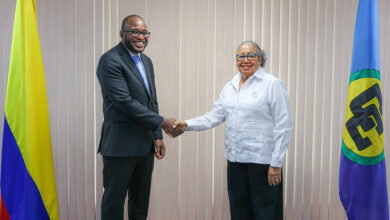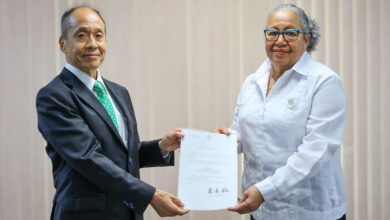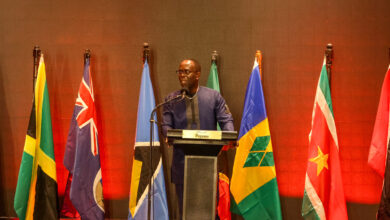GEORGETOWN, Guyana – The election which took place yesterday in Venezuela was of a certain significance. It was a poll among legislators to elect the chairman of the National Assembly and pitted Diosdado Cabello, who already held the post, against challenger Blanca Eekhout, who belongs to the Chávista faction led by Vice President Nicolás Maduro. It masked the jostling for power which is going on behind the scenes in the wake of President Chávez’s latest bout of illness, and the cloud hanging over his swearing in for his fourth term on January 10. In any situation where Mr Chávez cannot be sworn in, or his health does not allow him to serve as president again, then transitional arrangements kick in, whereby the chairman of the National Assembly becomes interim president before the holding of another election within 30 days. It would place that person in a situation of some influence.
Venezuela is a deeply divided society, not just between the opposition and those who support Chávez, but as suggested above, at a different level between the Chávistas themselves. Various news sources have reported analysts as commenting that the Vice President is an ideologue who is close to the Cubans, while Mr Cabello is associated with nationalistic factions and the so-called bolíbourgeoisie, who have become wealthy during the fourteen years of Chávez rule. Most important, as a former army officer he has ties to the military, a silent, but critical player in the current game. El Nuevo Herald on Thursday saw Ms Eekhout’s candidacy to become Chairman of the National Assembly as a move on Mr Maduro’s part to wrest control of the legislature from Mr Cabello.
On Friday, with what appeared to be the intimations of a deterioration in President Chávez’s condition, El Nuevo Herald reported sources as saying that a plan had now been finalized for a transition if the President could not be sworn in on January 10 this week. There has been a great deal of discussion in the Venezuelan media about how to interpret the constitution, more particularly on whether there could be a postponement of the date and possibly even a change of venue, and yesterday Mr Maduro indicated that the inauguration could be postponed. This might reflect a hope on the part of the government for some level of recovery by President Chávez – at least from his present critical state – and/or, as Michael Shifter of the Inter-American Dialogue think tank cited by the Miami Herald said, a move by Mr Maduro to buy time and consolidate his position.





